-
 +3 +1
+3 +1What is Pegasus spyware and how does it hack phones?
It is the name for perhaps the most powerful piece of spyware ever developed – certainly by a private company. Once it has wormed its way on to your phone, without you noticing, it can turn it into a 24-hour surveillance device. It can copy messages you send or receive, harvest your photos and record your calls. It might secretly film you through your phone’s camera, or activate the microphone to record your conversations. It can potentially pinpoint where you are, where you’ve been, and who you’ve met.
-
 +17 +1
+17 +1How Huawei planned international robot espionage via email
Huawei began building its own phone-testing system, xDeviceRobot, in early 2012. The Chinese company hoped to improve the quality of its mobile hardware, which tended to fail far more often than competitors' devices in third-party trials. In May 2012, Huawei China asked T-Mobile if it could license or flat-out buy the company's phone-testing robot, Tappy, which served as a standard for much of the industry. T-Mobile said no.
-
 +13 +1
+13 +1Morton Sobell, Last Defendant in Rosenberg Spy Case, Is Dead at 101
Convicted in the Cold War spy trial that delivered Julius and Ethel Rosenberg to their deaths and divided the nation, he later admitted that he had been a spy.
-
 +29 +1
+29 +1Russia Has Been Linked to Malware That Targets Industrial Equipment
IN DECEMBER, RESEARCHERS spotted a new family of industrial control malware that had been used in an attack on a Middle Eastern energy plant. Known as Triton, or Trisis, the suite of hacking tools is one of only a handful of known cyberweapons developed specifically to undermine or destroy industrial equipment. Now, new research from security firm FireEye suggests that at least one element of the Triton campaign originated from Russia. And the tipoff ultimately came from some pretty boneheaded mistakes.
-
 +15 +1
+15 +1'Being cash-free puts us at risk of attack': Swedes turn against cashlessness
It is hard to argue that you cannot trust the government when the government isn’t really all that bad. This is the problem facing the small but growing number of Swedes anxious about their country’s rush to embrace a cash-free society. Most consumers already say they manage without cash altogether, while shops and cafes increasingly refuse to accept notes and coins because of the costs and risk involved. Until recently, however, it has been hard for critics to find a hearing.
-
 +13 +1
+13 +1Christopher Steele's Other Report: A Murder In Washington
The author of the famous Trump dossier provided a secret report to the FBI asserting that RT founder Mikhail Lesin was bludgeoned to death by thugs hired by an oligarch close to Putin. Three other sources independently told the FBI the same basic story, contradicting the government’s finding that Lesin’s death was accidental.
-
 +21 +1
+21 +1Declassified Files Reveal the US Believed the Soviet Union Mastered Mind Control
Declassified documents from the 1970s have revealed the US government were certain the Soviet Union had mastered telepathy, hypnosis and dream infiltration, a la Hollywood blockbuster Inception. A recently declassified Defense Intelligence Agency (DIA) report documents the numerous ways the US government believed the Soviet Union could attack or influence small groups of people via paranormal means.
-
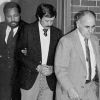 +1 +1
+1 +1How to Get Away with Spying for the Enemy
How does someone get away with helping a foreign adversary? Writer Sarah Laskow digs into the gonzo story of an American acquitted of spying for the Soviets—even after he confessed to it.
-
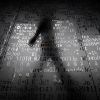 +26 +1
+26 +1U.S. bans use of Kaspersky software in federal agencies amid concerns of Russian espionage
The U.S. government on Wednesday moved to ban the use of a Russian brand of security software by federal agencies amid concerns the company has ties to state-sponsored cyberespionage activities. In a binding directive, acting homeland security secretary Elaine Duke ordered that federal civilian agencies identify Kaspersky Lab software on their networks. After 90 days, unless otherwise directed, they must remove the software, on the grounds that the company has connections to the Russian government and its software poses a security risk.
-
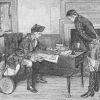 +23 +1
+23 +1The Letter That Won the American Revolution
In 1777, George Washington faced a losing war. Then he created America's first espionage operation.
-
 +2 +1
+2 +1You’ll never guess where Russian spies are hiding their control servers
Turla uses social media and clever programming techniques to cover its tracks. By Dan Goodin.
-
 +9 +1
+9 +1Russia-linked hackers impersonate NATO in attempt to hack Romanian government
In this week’s most shared tweets: Reported hate crimes against Muslims in the United States rose dramatically, again; Trump fires Comey; in a boost for rights, France elected Emmanuel Macron to the presidency, but the far-right’s unprecedented share of the vote should be a wake-up call for France; the crisis in Venezuela deepens; worrying trends in Indonesia; and a campaign to stop anti-gay attacks in Chechnya – get the background from HRW’s Facebook Live Q & A.
-
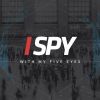 +17 +1
+17 +1iSpy - The Five Eyes Alliance
An interactive documentary that shines a light on a global Spy Network Between Five Countries. Created by Jam3, Fumes and The Docufactory, with support from CMF, NZ On Air and Take Part.
-
 +22 +1
+22 +1Government accused of 'full-frontal attack' on whistleblowers
Outcry follows plans to radically increase prison terms for revealing state secrets and prosecute journalists. The government’s legal advisers have been accused of launching a “full-frontal attack” on whistleblowers over proposals to radically increase prison sentences for revealing state secrets and prosecute journalists. Downing Street believes a major overhaul of existing secrecy legislation is necessary because it has become outdated in a digital age when government employees can easily disclose vast amounts of sensitive information.
-
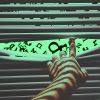 +23 +1
+23 +1The Hoarder Who Tried to Spy for Saddam
Brian Regan pulled off the largest theft of U.S. government secrets before Edward Snowden—and he nearly got away with it. The idea of committing espionage began taking shape in Brian Regan’s mind through the early months of 1999 as he found himself in the vortex of a perfect storm created by the continuing humiliations at work, the worsening of his financial situation and the growing rift in his marriage.
-
 +22 +1
+22 +1'I thought I was smarter than almost everybody': my double life as a KGB agent
On a chilly morning in December 1988, computer analyst Jack Barsky embarked on his usual morning commute to his office on Madison Avenue in Manhattan, leaving his wife and baby daughter at home in Queens. As he entered the subway, he caught sight of something startling: a daub of red paint on a metal beam. Barsky had looked for it every morning for years; it meant he had a life-changing decision to make, and fast.
-
 +10 +1
+10 +1Reports of Treason Arrests Fuel Russian Hacking Intrigue
In the days since it emerged that four men had been arrested on treason charges linked to cyber intelligence and Russia's domestic security agency, conspiracy theories and speculation about the case have swept through Moscow. Was it some fallout from the alleged Russian hacking of the U.S. presidential election? Were they part of a hunt for a possible mole who tipped off American intelligence agencies? Was it a power struggle within Russia's security services?
-
 +6 +1
+6 +1Yuri Bezmenov: Psychological Warfare Subversion & Control of Western Society (Complete)
Yuri Bezmenov (alias Tomas Schuman), a Soviet KGB defector, explains in detail his scheme for the KGB process of subversion and takeover of target societies at a lecture in Los Angeles, 1983.
-
 +24 +1
+24 +1Foes of Russia Say Child Pornography Is Planted to Ruin Them
His indomitable will steeled by a dozen years in the Soviet gulag, decades of sparring with the K.G.B. and a bout of near fatal heart disease, Vladimir K. Bukovsky, a tireless opponent of Soviet leaders and President Vladimir V. Putin of Russia, is not a man easily put off his stride. But he got knocked sideways when British police officers banged on the front door of his home on a sedate suburban street here early one morning while he lay sick in bed and informed him that they had “received information about forbidden images” in his possession.
-
 +6 +1
+6 +1A New Biography Traces the Pathology of Allen Dulles and His Appalling Cabal
AS I READ The Devil’s Chessboard: Allen Dulles, the CIA, and the Rise of America’s Secret Government, a new book by Salon founder David Talbot, I couldn’t help thinking of an obscure corner of 1970s history: the Safari Club. Dulles — the Princeton man and white shoe corporate lawyer who served as CIA director from 1953 to 1961, still the longest tenure in agency history — died in 1969 before the Safari Club was conceived. And nothing about it appears in The Devil’s Chessboard. But to understand the Safari Club is to understand Allen Dulles and his milieu.
Submit a link
Start a discussion




















